Normal People, One Day & The Quotidian Symphony Of Love
This is #ViewingRoom, a column by OTTplay's critic Rahul Desai, on the intersections of pop culture and life.
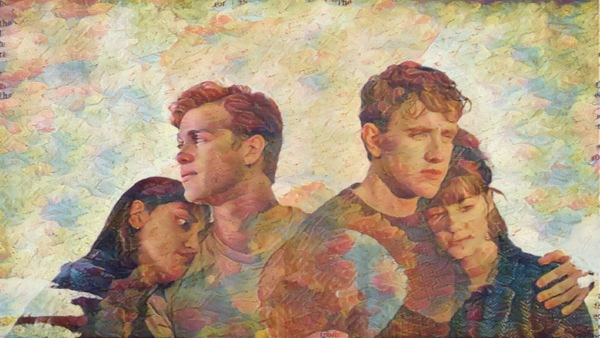
Last Updated: 12.29 PM, Aug 04, 2024
This column was originally published as part of our newsletter Stream of Consciousness on August 4, 2024. Subscribe here. (We're awesome about not spamming your inbox!)
***
THE TWO GREAT LOVE STORIES of this generation might be geopolitical foes, but they have a lot in common. Both are literary adaptations that correctly reframe romance as a long-form emotion. Normal People is a 12-episode Irish miniseries based on Sally Rooney’s 2018 novel; One Day is a 14-episode British limited series based on David Nicholls’ 2008 novel. Both shows feature potential soulmates who use friendship as a front to sustain the newness of love. Both couples expand the chase — the uncertainty, adolescence and first-ness of falling for someone — through a series of ‘almost’ encounters over the years. It’s as if they keep resisting — and edging — each other to stay fuelled by the anticipation of climax. Leading separate lives keeps their chemistry alive because it’s replete with the seduction of hope; it makes every kiss feel like the first kiss. In both cases, their union is cut short by an anti-climax. Normal People’s Connell must study abroad and Marianne stays back in Dublin; One Day’s Emma dies and Dexter is left alone.

In an era bereft of romantic fiction, however, the real essence of these shows is hidden in the titles. To name them “normal people” and “one day” is to celebrate the lyrical ordinariness of feeling. It is to imply that love need not adopt the identity of a story; that romance is no longer limited to the language of its telling. It’s fittingly ironic that the reason such love stories revive the genre is because they defy everything we know about it. They challenge the tangibility — the cinema — of togetherness. For instance, the intimacy in Normal People is a quotidian symphony of half-sentences and bodily questions. There’s something painfully average about the way Marianne and Connell touch and stay in touch: the sex they have, the separations they craft, the attachment they suppress, the longing they endure. None of it is grandiose. None of it unfolds in the binaries of emotional highs and lows. Instead, it occupies the cracks of belonging — where things remain unsaid rather than said, where destiny is reached rather than seized. It’s love in the vocabulary of life itself.

One Day extends this anti-telling by design. The narrative spans nearly two decades from 1988, but each episode focuses on a single day — July 15th, the day Emma and Dexter first met as teenagers — every year since. In other words, the narrative is deconstructed into a series of snatches, sensory postcards that emerge from no fixed address. What this does is liberate their bond from the continuity of living — and by extension, the pressure of proving itself. Unlike conventional romantic dramas, then, One Day exists in the cracks of time itself. Every episode begins so casually that, as a viewer, it’s like climbing onto a moving train. It thrives on the suspense of us wondering what we’ve missed, how much ‘scenery’ has passed, and the distance travelled by these characters. For example, a day in 1995 opens with Emma having an affair with the married headmaster of the school she teaches at; it’s implied — but not explicitly shown — that heartbreak pushed her into this reckless space. How that heartbreak happened is left to our imagination.

Consequently, we sense but don’t see many canon events. Like the death of Dexter’s mother, the grief of which eventually derails his TV career. Or the start of his relationship with Sylvie, the future mother of his child. Or the birth of this child. Or the day he discovers Sylvie’s affair. Or the start of Emma’s writing career; lesser stories would have milked the moment she lands a publishing deal. Or Dexter and Emma’s long-awaited wedding. Or most of all, Emma’s funeral; lesser shows might have fashioned an entire episode on the immediate aftermath of her accident. A lot of these ‘core moments’ occur in the vacuum between July 15th(s). None of it is visible; time joins the dots. When imagined together, they become the love story we are accustomed to watching — the kind that’s built on the aesthetic excesses of beginnings and endings. But One Day remains a romance of middles, where the plurality of love spars with the singularity of time. Where normal people live — and long — through days that don’t define them. Some may call it the alternate universe of closeness, but it’s very much the real world of oneness. It’s the unglamorous training montage between the high-stakes races: An awkward Greek holiday, an argument at a restaurant, an unanswered phone call, a wedding reception, a bad day at work.

I suppose this ties into the fact that we tend to register the most unassuming passages of life. Love is nothing but the mutiny of memory. Falling for someone is like remembering a future before picturing it; it’s so new that it’s familiar. The rhythms of One Day simply evoke this dissonance. It's why Dexter remembers core moments from his first day with Emma only in the finale, a few years after she's gone. Up until then, he had edited them out of his mind, keeping with the everyday theme of the series. He remembers that, while walking down the hill, Emma had delivered a quirky monologue about how she wouldn't be a footnote in his story. He also remembers that they kissed on the steps before parting and promising to stay connected. It’s almost as if they were soulmates all along — even in distance, separation and fallouts — without realising it. And it’s as if, in her absence, Dexter’s life will go back to being a story. His next chapter will probably be a series of canon events: the death of his dad, an unexpected break as an actor, the return of an old flame, his daughter’s graduation ceremony perhaps.
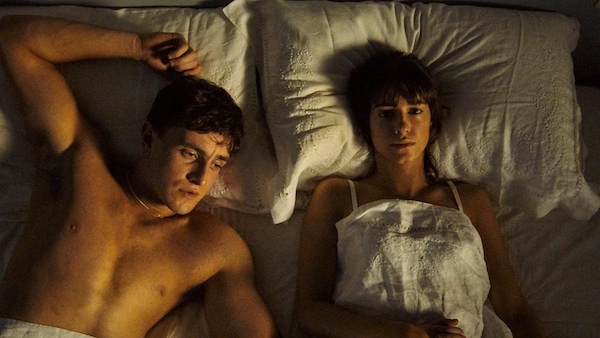
Another telling element of the tragedy is how, the moment Emma and Dexter unite for good, the series abandons its one-year-per-episode format. They inevitably commit at the end of the 12th episode, when he visits her in Paris with a desire to revise their stilted togetherness. The 13th and penultimate episode opens with them as blissful companions a year later — Emma is writing her next book, Dexter is opening a French cafe. This is what they, and we, always wanted. Suddenly, the date changes to the next year while they’re in bed. Emma wants to be a mother after spending the day with Dexter’s daughter. Again, a year passes and she is struggling to get pregnant. They have a little argument and Dexter banters with an attractive employee at the cafe. The viewer’s heart sinks because these are tropes of marital wear and tear; it looks a bit like Dexter’s previous marriage. But there’s no such problem; it’s just a difficult day in an ocean of gratifying ones. They’re still a happy couple. When Emma dies at the end of this episode, three years have passed in a narrative frame of one.

The implication is twofold here. It suggests that not much changes — or that change itself becomes subjective — when we finally find our person. Time is a blur for Emma and Dexter once they embrace the romantic inertia of their journey. Similarly, five years — and days — pass in the finale as Dexter struggles to recover: love and grief are two sides of the same coin. Five years can feel like a lifetime, but it can also feel like life is running out of time. The acceleration implies that, after years of pressing to be on the same page, Emma and Dexter run out of ink in the very first paragraph of alignment. Time is cruel; it escapes them as soon as they dare to begin. They deserve at least a few episodes of harmony, but it’s almost like fate punishes them for waiting so long. Their stillness morphs into a reluctant montage.
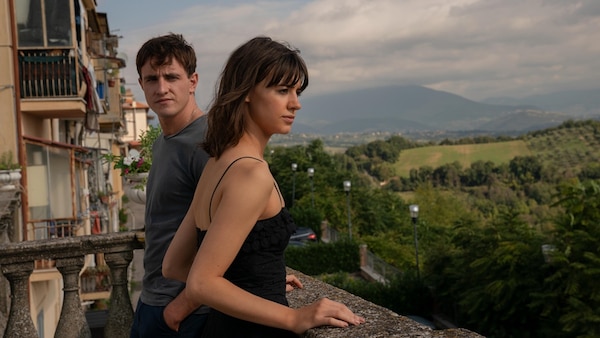
This is the aspect that broke me. There is some truth to the trickery of time and love. But it extends beyond romantic relationships. For some, it could be a distant parent who passes away the moment they erase that distance. And for others, like myself, it could be a two-decade-old kinship that’s extinguished the moment it grows new wings. One of the reasons I’m struggling with the grief of losing my best friend is because it felt like our journey had just started. We were always close, but it was more in a one-day way. For the first 14 years, we had separate lives whose arcs touched once in a while: He visited every year and we’d do the most mundane things. But the broader timing rarely synced. He started working and travelling before I did. I took ages to reach a stage where I was financially and emotionally comfortable enough to think of him — or anyone — as my person. It was not until 2017 that we took the leap and started planning trips together.
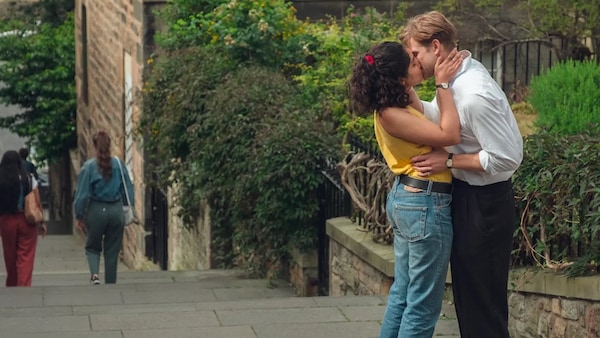
Up until then, every year felt like a different episode. But time flew when we became kindred spirits. Life became quicker. All those adventures and selfies and chats and memories — till the end of 2020 when he was diagnosed with leukaemia; and till the beginning of 2023 when he died — feel compressed into a single time-lapse episode. The editing of these six years is tangible. It’s unfair. There was so much to do, so many places to see. The world was at our feet. We deserved an entire season, but we barely got one day.
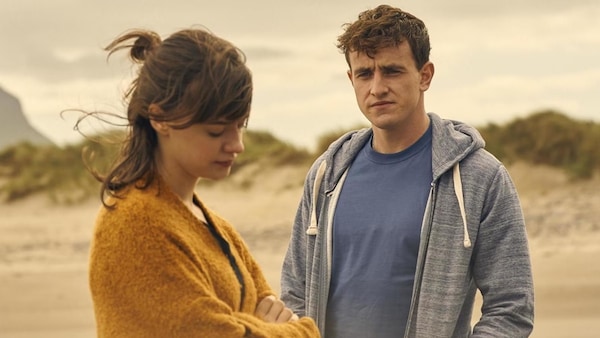
I’m now in the finale. More than a year later, I have no sense of time. I can’t fathom the sheer volume of life happening around me. But it’s happening. Tomorrow, it could be two years. The day after, it could be three. I’m starting to recall a few canon events of our friendship that I had conveniently forgotten. Whenever I see a long text, I remember the message he sent me from the airport the night he left Mumbai. We had just watched Superman Returns, and he poetically likened the sunrise to his new dawn; it was a very cinematic observation and it made me smile in my sleep. That message somehow endured across multiple mobile phones. But the letters never aged badly. He was ahead of his — our — time.
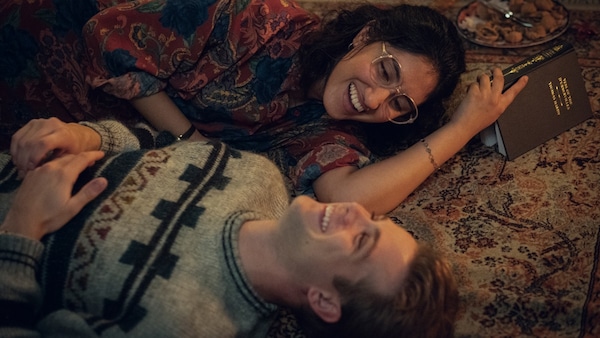
I remember the email he sent me during a professional crisis; he encouraged me to follow my instincts and expressed admiration for a moral stand I took. I remember the video he sent my partner for a birthday montage; he mentioned that it’s been quite the ride, which in turn suggested that he valued me as much as I valued him. I remember the evening he told me that a “blood disease” was likely. I also remember that he was the first person I texted every time I experienced heartbreak. He just had the right words. He knew the sweet spot between what I needed to hear and what I wanted to hear. These weren't the core moments our story was defined by, but the signs were there all along. He was always at the centre of my existence — I just chose to remember the rest of us. Months after he left, I somehow ended up going to Athens and Warsaw, two cities that held our early foundations. We were connected, and only now is my head completing those memories. Only now am I realising that our everything-ship was built on both rituals and reckonings. Every act of ours feels a minute longer. We deserved an entire season, but we got forever and a day.
